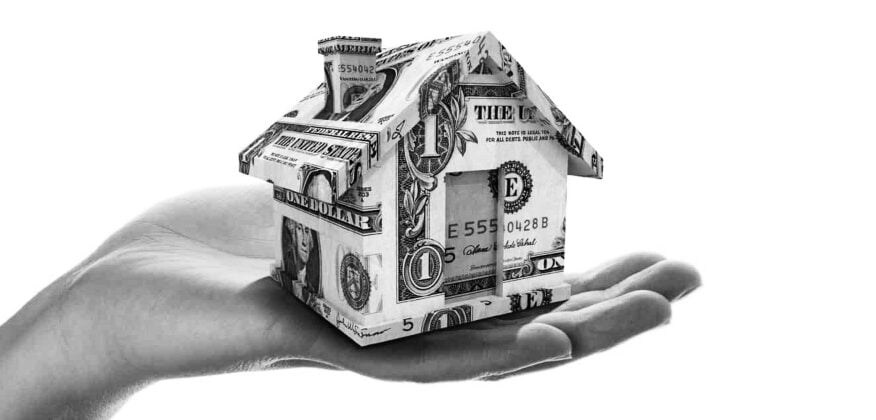A lot has changed in the post-pandemic economic environment. We have gone from a decade of low-interest rates and low inflation to our current situation, which is quite the opposite. As we are now well aware, inflation shows up in the daily costs of life that matter most, food, shelter, and personal consumption.
Considering the fact that almost half of Americans carry a mortgage on their property, one wonders whether it makes financial sense to pay down the mortgage in a rising rate economy or invest the funds that would be used to pay it down into the market or other asset classes.
Let’s take a look at the finance behind mortgage bpayments, or any type of term loan for that matter. Mortgage payments are made up of two components, interest on the loan and a principal amount that pays down the total outstanding balance. A $1,500 monthly payment might pay $500 toward interest.
The other $1,000 will reduce the principal loan balance. The loan is paid back, or amortized, over a certain period, usually 30 years, with a conventional mortgage. You might be surprised that in the early years of paying your mortgage, the majority of the mortgage payment goes to paying interest first.
Funny how the lenders set it up that way! If you have a 30-year mortgage with a starting balance of $200,000 and a fixed interest rate of 3.5%, your amortization schedule, or mortgage payment, would work out like the following.
| Components of a Mortgage | ||||
|---|---|---|---|---|
| Payment Number | Monthly Payment | Principal | Interest | Loan Balance Remaining |
| 1 | $898.09 | $314.76 | $583.33 | $199,685.24 |
| 109 (10 years) | $898.09 | $431.10 | $499.99 | $159,679.65 |
| 229 (20 years) | $898.09 | $611.45 | $286.64 | $97,665.59 |
| 301 (25 years) | $898.09 | $754.10 | $143.99 | $48,613.86 |
| 360 (last payment) | $898.09 | $895.48 | $2.61 | 0.00 |
Deciding whether to pay off your mortgage early largely comes down to whether your opportunity cost is greater than or less than your mortgage cost. Two years ago, when interest rates on safe investments were near zero, that opportunity cost was lower than most mortgage rates.
Homeowners had to take some risk and a long-term view to justify diverting extra money into savings versus paying down their mortgage. The times have changed. Today, in May 2023, we can invest in Treasury bills, all of which earn over 4.5%.
Several high-yield savings accounts and CDs are offering over 4.5%, as well. If, for example, your mortgage rate is below 4.5%, say 3.0%, then paying down a mortgage early is basically turning down extra money and safety. The 3.0% interest expense you’re saving is less valuable than the 4.5% you could be earning even after accounting for taxes.
In addition, savings accounts, CDs, and T-bills are backed by the U.S. federal government, whereas your equity in real estate is not. Let’s take another example. Say you have a 30-year mortgage of $200,000 with a fixed rate of 4.5%. Now let’s say that you can come up with an extra $300 per month to put toward your mortgage.
You’d shave off 11 years and one month from your repayment period, plus save $67,816 in interest.
Not too shabby. On the other hand, you could take that $300 per month and invest it in an index fund that tracks the S&P 500 Index instead. Conservatively, we can assume an average annual return of 8% on your investment.
After the same period of time, you would have amassed $160,780, which is more than double your potential interest savings. You’d have roughly $105,487 left on your mortgage. If you decided to pay your mortgage early after all, you could use your investment funds and still have $55,293 left over.
Financially speaking, it’s all about the opportunity cost, or the foregone interest that could be earned at a rate higher than your mortgage payment.
Take a look at the various returns in the following table to give you an example.
| How Much $100,000 Can Potentially Earn in Ten Years | |||
|---|---|---|---|
| Invested Amount | Years | Rate of Return | Investment Gain |
| $100,000 | 10 | 2% | $22,019 |
| $100,000 | 10 | 5% | $62,889 |
| $100,000 | 10 | 7% | $96,715 |
| $100,000 | 10 | 10% | $159,374 |
The bottom line is that if you have a low mortgage rate, paying off your mortgage early may not make sense when you could invest that money instead.
Your investment returns could be double what you’d save by not paying as much mortgage interest. Also, mutual fund and ETF investments give you more liquidity than locking up your money in your home equity.
However, if your mortgage rate is comparable to the investment returns you would earn, the guaranteed savings, and the security of owning your home debt free, paying off your mortgage earlier is a better option than investing your extra cash.











